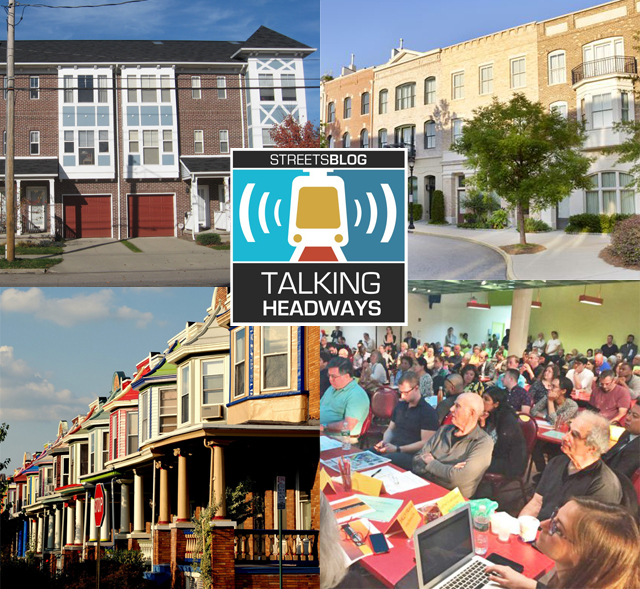This week, Max Holleran talks about his book, "Yes to the City: Millennials and the Fight for Affordable Housing," about the rise of YIMBY vs. NIMBY housing politics, the changes in housing activism, and how housing fights are going global.
For those of you who prefer to read rather than listen, check out the edited highlights below the player. If you want a full, unedited transcript, be our guest by clicking here.
Jeff Wood: Well, so the book is, "Yes to the City: Millennials and the Fight for Affordable Housing. "What was the impetus for starting to think about YIMBYism, NIMBYism and housing politics in cities?
Max Holleran: There’s really two things. So for me, one of the big things is that I saw housing usually through the anti-gentrification movements and so through people who were in neighborhoods that were getting really expensive and they were starting to talk about getting pushed out of those neighborhoods and that being a form of dispossession. A lot of that was also across racial lines. So, people coming into neighborhoods that were majority people of color and buying homes there, renting homes there, and changing the demographic makeup of that neighborhood, also with immigrant neighborhoods. That was a really big thing.
You know, the YIMBY movement is not focused on gentrification. It looks at housing very much from a supply-and-demand standpoint and has a very simple argument, which is not about preserving a neighborhood or keeping neighborhoods residents because it’s a place that they’re emotionally attached to. It’s very much just about building new housing. I think that was a really big shift for people who are in housing movements to see so many people with a very different set of talking points than they were used to. The other thing is that, for a long time, we thought about housing in terms of class; we thought about people who were living in public housing; we thought about people who were experiencing homelessness and people who were really struggling, and it was tied to how much money they had.
A lot of what YIMBYism and these new housing movements have done is think about housing in terms of age. They would say, you know, there’s a whole new generation of people, people born after 1990 basically, who are really cursed when it comes to buying a home or renting a home. It universalizes it as a generational experience, which is true, and it’s not true. On one hand, what they’re saying is that housing has become more expensive and everyone suffers. That is true, but there’s people who suffer a lot more and those are people who are at the bottom end of the pay scale or unemployed.
Wood: One of the themes of the book is that generational divide. I’m curious, through your interviews and things, how did that keep coming up in terms of going from this class struggle to something that a group wanted to paint as generational struggle in terms of boomers versus millennials, to put it in crass terms that don’t really fit but, kind of fit.
Holleran: They're the terms that the movement uses: "boomers versus millennials." Most of them are in their early 40s or under 40, and most of the people they’re fighting are in their 50s or 60s or 70s. I think you could also say "renters versus homeowners." There’s a lot of different ways we could talk about this fight, but it’s people who want to build more and people who want to build less or not at all. The YIMBY movement has vociferously said that what we need to do is build more apartments. We need to densify existing urban neighborhoods that might mean living next to an apartment, a small apartment building, which a lot of people don’t like because it disturbs their sense of what suburbia should look like or what their block looked like in the past.
The movement is very direct. What they want to say is that people who live in the nicest neighborhoods are controlling that space and they’re selfishly hogging that space for themselves when they should be letting other people into those neighborhoods that are blessed with good transit, with nice amenities, with parks that are close to central areas. They would say to people who live in these nice neighborhoods: Look, you don’t live in a bucolic suburb. You live at the edge of a city or sometimes even in a city, and you need to come to terms with that urbanism. They locate it as a generational thing but also sometimes even farther back and talk about how all these Americans who live in the suburbs tell themselves they’re living some sort of Jeffersonian dream away from the city when they’re not.
They’re living next to a shopping mall; they’re living next to a highway; they’re not living out in the hills. They need to stop pretending like they are and let some new development come to their neighborhood.






